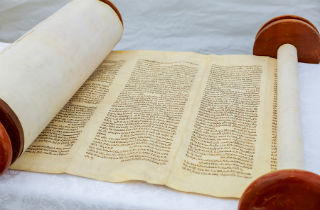Jewish religion and the 12 steps
It is a matter of historical record that both of the two original AA cofounders had at one time belonged to an evangelical Christian movement known as the Oxford Group and were strongly influenced by many of its basic ideas. On the other hand, it is also a fact that AA as a whole separated itself from this group before the publication of the Big Book. Another point worthy of consideration is that while the Big Book certainly uses what many would consider typically “religious” language, it never once endorses a particular faith.
In fact, it seems that the Book actually goes to great lengths—abnormally so, considering the time and place it was written, that is, America in the 1930s—to eschew favoring any particular religion or even making assumptions about the religious affiliation of its members. For example, note this passage from the Big Book that speaks about setting aside time for daily prayer and meditation:
If we belong to a religious denomination which requires a definite morning devotion, we attend to that also. If not members of religious bodies, we sometimes select and memorize a few set prayers which emphasize the principles we have been discussing. There are many helpful books also. Suggestions about these may be obtained from one’s priest, minister, or rabbi. Be quick to see where religious people are right. Make use of what they offer. (p. 87)
Are the 12 steps and Jewish religion mutually exclusive?
The reference to consulting with “one’s . . . rabbi” most certainly catches the eye, but that is not even what makes the above-quoted passage so telling. Yes, it is rather remarkable considering that these words were written when the program was not even four years old and hardly any Jews had joined the ranks of the fledgling organization. However, a far more compelling argument against sectarian classification of the Big Book is to be found in what the above-quoted lines do not say.
While this passage clearly conveys a favorable attitude toward (1) religious affiliation—“if we belong to a religious denomination”; (2) communal prayer—“we attend that also”; and (3) religious study—“there are many helpful books,” it is, at the same time, abundantly clear that the institution of religion is seen as something separate from (even if complementary to) the program. It is evident that the program’s authors envisioned the distinct possibility that members of their spiritual group might very well be people who would pray daily and yet not affiliate with any religious order.
From this reading (and many passages like it) in the Big Book, it becomes obvious that the distinction between “religion” and “spirituality” that is routinely emphasized by members of Twelve-Step groups today is not a mere construct retrofitted to the program lately (as some suspect it to be) but an underlying principle firmly rooted in the movement’s original text.
By the way, do you know what that distinction is? Religion, say the Twelve-Steppers, is for people who don’t want to go to hell. Spirituality is for people who’ve been there.









Related Posts